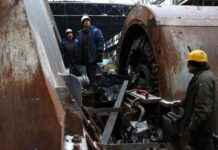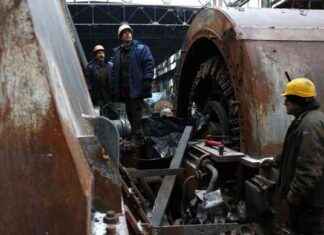the Transformation from comedian to mediemångsysslare, or, conversely, tends to be smooth. The comedian is already drillad in the face of an impatient audience and under considerable pressure to bring and move. But the next step, to become ”real” showman, can be a painful history. Blessed in the memory of them is kraschlandningar that we have, through the years, and fingers, the have witnessed.
When Kodjo Akolor takes on enmansföreställningen ”The dad” of the icelander Bjarni Thorsson – and that since more than a decade, has played in 23 countries, including Thorsson himself – was, therefore, perhaps a bit of concern. At least in the part of the premiärpubliken who was here to watch the show and not just say ”no but hello!”
thorsson’s piece has been developed from the monologue with his own history, I don’t know how many roles. That is all, except an eight year-old ”Adam”, now to become fathers, or working to educate these.
the Scene is a prophylactic pappagrupp with severely different types. The degmjuka the pedagogue (”Hello everyone. Here you have the right to have your opinions”); and André, a ”naej, såatteh”-type anstucken of blålilabruna values; Patricio from the town with a thousand ”brother, listen”; the older Papi, african veteran of the pappafrontlinjen and who think that all this is nonsense.
Opinions and prejudices are changed and broken, hard, but Akolors transitions are fast and smooth. Comment, body language and minspel, everything is fine. Most impressive, he in the Papi role, he plays just plain old very good.
more and more characters whizzing past – from wives in falsetto to gothenburg barnvagnssäljare at Babyland and obstetrician. Where it is not really sitting break Kodjo Akolor in yourself in order to smoothly gloss over the fadäsen.
grateful and älskansvärda Patrico with his ”brother” and ”tranquilo por favor!”, disappear almost completely from the document. In the second act, is this near enough alone and it gets a little tedious. Here wish you a tighter script, less time for Patricio and more for the interesting Papi, and – despite the fact that this is all about the fathers – the mothers.
Types are transformed to the fathers before our eyes. They get daughters and André find themselves, lyckohulkande, have been a feminist while Patricios performances, to ”let the child scream”, will be put to shame. All we are, of course, in the end, quite similar to when we are faced with parenthood. Therefore getting the message to the end a bit obvious, and very sentimental. Enough we’ve had enough of privileged fathers ‘ history now?
But Kodjo Akolors metamorphosis is complete, with the well accepted result. And a continuation to yearn for.
Read more of DN’s scenrecensioner here.








